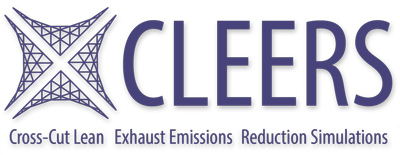Self-Learning Identification and Stochastic Control for Autonomous Intelligent Propulsion Systems
Andreas Malikopoulos, Oak Ridge National Laboratory
Increasing demand for improving fuel economy and reducing emissions has stimulated significant research on and investment in advanced propulsion systems. These systems have introduced a number of controllable variables that have enhanced our ability to optimize engine operation. In particular, the determination of the optimal values of these variables, referred to as engine calibration, has been shown to be especially critical for achieving high engine performance and fuel economy while meeting emission standards.
State-of-the-art engine calibration methods generate a static tabular relationship between the controllable variables and steady-state operating points or specific driving conditions, e.g., vehicle speed profiles for highway and city driving. These methods, however, seldom guarantee optimal engine operation for common driving habits, e.g., stop-and-go driving, rapid acceleration, or rapid braking. Each individual driving style is different and rarely meets those driving conditions of testing for which the engine has been optimized.
This talk presents the theory and algorithms for making the engine of a vehicle into an autonomous intelligent system capable of learning its optimal operation in real time while the driver is driving the vehicle. The engine is treated as a controlled stochastic system, engine operation is modeled as a controlled Markov chain and engine calibration is formulated as a sequential decision-making problem under uncertainty. The engine?s ability to learn its optimum operation is not limited to a particular driving style. The engine can learn to operate optimally for different drivers, when the drivers indicate their identities through their car keys before starting the vehicle.
The ultimate goal of this approach is to fully exploit the existing propulsion technologies in terms of the optimum specified performance criteria, e.g., fuel economy, or pollutant emissions, that can be achieved. It aims to provide an answer to the following question: ?For a propulsion system with a given technology, what is the maximum efficiency that a driver can get with respect to his/her driving habits?? The long-term potential benefits of this approach are substantial. True fuel economy of vehicles will be increased while meeting emission standard regulations; drivers will be able to evaluate their driving behavior and learn how to improve fuel economy and reduce emissions by modifying it. This capability can also be especially appealing in advanced hybrid-electric propulsion systems when real-time optimization of the power management is considered.

